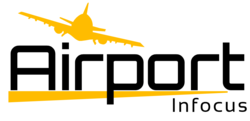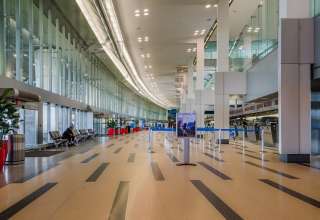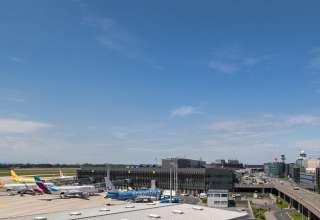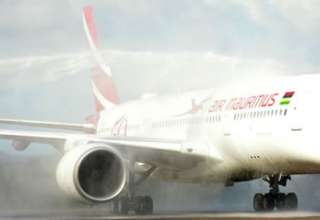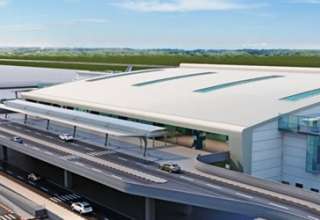Leo, the innovative baggage robot developed by air transport IT provider SITA, is in Marrakech for the COP22 climate talks taking place in the city from 7-18 November 2016. Leo, is being hosted by Royal Air Maroc, Morocco’s national carrier.
Leo will be on display in the main COP22 convention centre in Bab Ighli from 7-16 November before moving to Marrakech Manara Airport and Casablanca Mohammed V International Airport this week where the robot will assist delegates flying Royal Air Maroc to check-in their bags. SITA’s baggage robot will remain in Morocco until November 27 where the national airline will conduct numerous airport trials using Leo.
Abdelhamid Addou, Chairman & CEO of Royal Air Maroc, said: “The smart use of new technologies is undoubtedly the key to improving the passenger experience while helping airlines better manage a growing number of travelers in a more sustainable way. This requires out-of-the-box thinking and Leo is exactly the sort of innovative exploration that will help airlines and airports manage the new challenges we as an industry will face in the next decade.”
Leo is a fully autonomous, self-propelling baggage robot that has the capacity to check in, print bag tags and transport up to two suitcases with a maximum weight of 32kg. It also has an obstacle avoidance capability and can navigate in a high-traffic environment such as an airport.
Leo provides a glimpse into the future of baggage handling being explored by SITA Lab and is the first step to automating the baggage process from the moment passengers drop their bags to when they collect them. Using robotics and artificial intelligence, bags will be collected, checked in, transported and loaded onto the correct flight without ever having to enter the terminal building or be directly handled by anyone other than by the passengers themselves.
Hani El-Assaad, SITA President, Middle East, India and Africa said: “Through the innovative work of the SITA Lab we are able to tackle some of the key challenges that face airlines and airports today. Leo demonstrates that technologies such as robotics can help the air transport industry manage the growth in traffic in a more sustainable way while offering passengers an unencumbered journey through the airport and onto the aircraft.”
Leo comes to the assistance of passengers as they approach the terminal building. Touching Leo’s Scan&Fly bag drop interface opens the baggage compartment doors to allow passengers to place their bags inside. After the passengers have scanned their boarding passes, the tags are printed and can be attached to the bag. With the bags loaded and tagged, the compartment door closes and Leo displays the boarding gate and departure time. Leo then takes the bags directly to the baggage handling area where they are sorted and connected to the correct flight.
